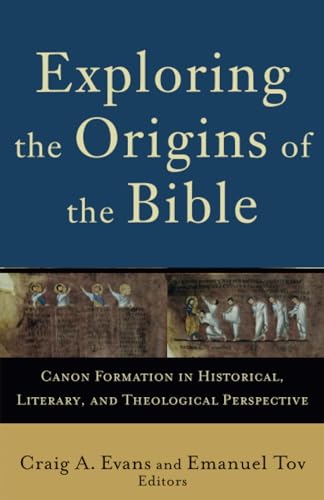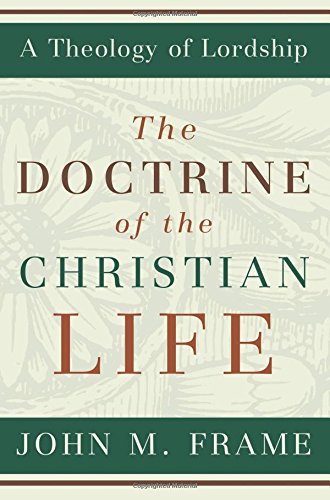The Barth Lectures
Written by Colin E. Gunton Reviewed By Scott HarrowerSometimes a book can be pure reading pleasure. Every once in a while a great book is pure listening pleasure. This is the experience of listening to a master like Gunton in The Barth Lectures. For example, in the first chapter Gunton says:
Not everyone buys into Barth. I don’t, all the way along the line, as I get older I get more and more dissatisfied with the details of his working out of the faith … over the years I think I have developed a reasonable view of this great man who is thoroughly exciting and particularly, I can guarantee, if you do this course, that you will be a better theologian by the third year, whether or not you agree with him—he is a great man to learn to think theologically with. (p. 10)
This book is the result of Paul Brazier’s recording, transcription, and slight editing of Gunton’s lectures on Barth at King’s College from 1999 to 2001 (Course B406). The first three chapters of The Barth Lecturesprovide an overview of Barth’s development with respect to Enlightenment thinkers such as Kant and Schleiermacher (chap. 1), the liberalism of Harnack and Herrmann, the eschatology of Johann Christoph Blumhardt, Barth’s contemporaries such as Bultmann (chap. 2), and the quest for a theological method in conversation with Harnack and Anselm (chap. 3). Chapter 4, “The Basis, Task and Situation of Theology,” begins Gunton’s work on the Dogmatics, which is carried on throughout the rest of the work. As an aside, this chapter also includes a comment about Barth-reception, which for Anglican reviewers such as myself is both striking yet explanatory:
The influence of empiricism, especially on the minds of English and American theologians, cannot be dismissed. The English, or to be more pertinent, the Anglican theological mind is shaped by a philosophical tradition that does not find Barth’s approach to theology easy to understand let alone agree with.… Part of our intellectual tradition makes it hard for us to understand—particularly an Anglican tradition. Anglicans on the whole like things to be nice and middle way, the via media. And there is not much of the middle way in Karl Barth!… Barth’s assertive style does make it difficult for mild-mannered establishment Anglicans to cope with. (p. 66)
Chapter 5 is entitled “Barth on the Trinity and the Personal God,” and contains the following comment, which is a classic example of the way in which Gunton comments on Barth’s theology:
The basis of all theology lies in the fact that revelation does happen.… This revelation is Christological: Jesus Christ is God’s self-unveiling. The Father cannot be unveiled, but the Father reveals through the Son. This is imparted through the Holy Spirit. A little artificial I actually think, but you can see what he is actually trying to do: he is trying to show that inherent in the structure of God’s presence in Jesus Christ is a Trinitarian view of God.… The point here is that in Jesus Christ we see the limits, the possibilities of the knowability of God.… So Barth in a way is still retaining this dialectical structure: veiling-unveiling, knowability-unknowability, revelation-hiddenness.… In the end you have only got paradox.… God preserves his privacy. (pp. 79–80)
The best work in this book may be chapter 7: “Election According to Church Dogmatics II/2.” Here Gunton makes a major call that not only reflects Barth’s theology in II/2, but further also in such volumes as in IV/1, 2 and 3. If there is a central idea in Barth’s theology, it is the idea of covenant, namely, “that from eternity God covenants to be the God who elects human beings into relation with himself” (p. 149).
Another great chapter is chapter 11: “Church Dogmatics IV/1, 59.1—The Way of the Son into the Far Country.” In only twelve pages, Gunton provides a summary of the content and metaphysics behind a vital aspect of Barth’s Christology and ends with the following statement on Barth: “And when you are criticizing Barth it is only a question of where he puts a weight; he never forgets anything, he is too good a man for that” (p. 171).
The weakness of this work lies in its brevity, a limitation acknowledged by Christoph Schöbel in his insightful foreword. Schöbel’s foreword and Stephen E. Holmes’s introduction form a warm couple of personal testimonies to Gunton’s influence as a teacher, leader, and friend. In sum, we should all take Gunton’s advice and read as much of Barth as we can because “the people that write about him are much more boring than he is” (p. 9)! However, we may like to make at least one exception with The Barth Lectures.
Scott Harrower
Melbourne, Australia
Other Articles in this Issue
We begin with a question of translation. Many translations place a period after the word “conviction” in 1 Thess 1:5: “in power and in the Holy Spirit and with full conviction...
The Inexhaustible Fountain of All Good Things: Union with Christ in Calvin on Ephesians
by Lee GatissJuly 10, 2009 was the 500th birthday of the acclaimed French Reformer John Calvin...
The name of Martin Luther is perpetually linked to the doctrine of justification by faith alone...
Of the many questions currently surrounding the discussion about justification, the relationship between justification and spiritual fruit merits attention...
Every year a few students ask me my thoughts about whether they should pursue doctoral studies and I respond with what has come to be known as ‘The Speech...






